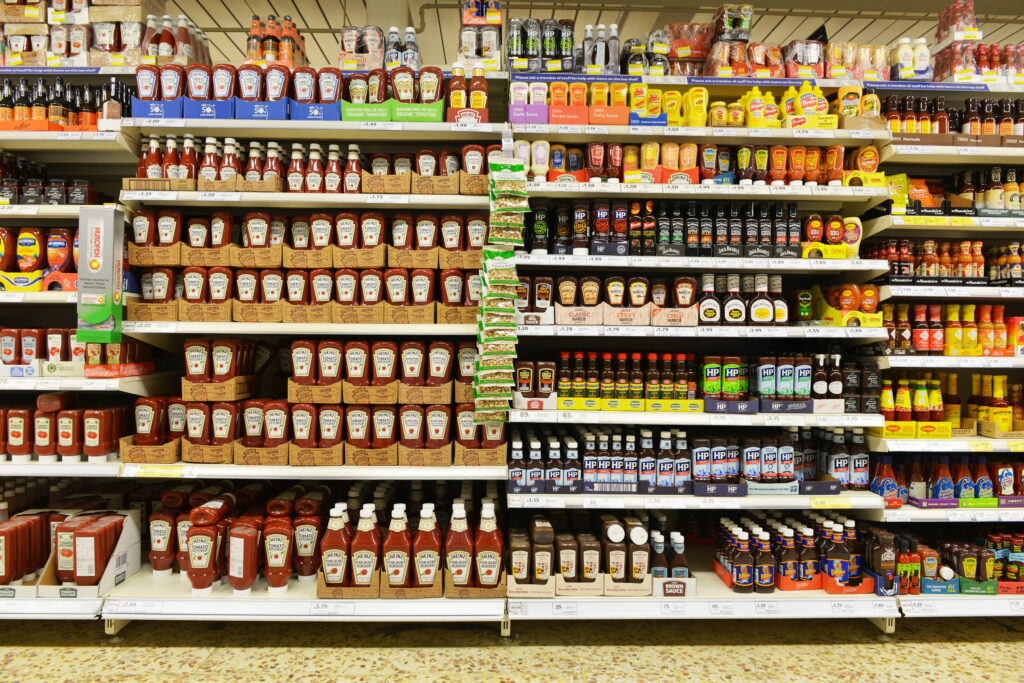The update included the news that paper and cardboard will now be collected separately.
The Independent MRF Group (IMG)
The Independent MRF Group (IMG) issued the following statement: “The Independent MRF Group (IMG) is thankful that the drawn out wait for clarity is over with regard to Simpler Recycling following the latest announcement from Defra. We note that where the benefits of commingled collections can be evidenced through TEEP, our customers can continue to collect in the most efficient and effective manner for their residents and businesses.
“Members of the group are already planning how we can support our current and future customers with data from our operations supported by independent analysis by leading environmental consultancies to satisfy the TEEP requirements. This will enable them to continue delivering their highly valued services to their residents within the tight fiscal limits that lie on the horizon for them.”
Palm Paper
Dr. Marina Palm, director of Palm Paper King’s Lynn, said: “At Palm Paper, we are proud to lead in sustainable manufacturing by producing newsprint from 100% recycled fibre. We welcome the Government’s announcement of the new Simpler Recycling framework, a vital step towards standardising waste and recycling systems across England, thus supporting the circular economy.
“The commitment to separate the collection of paper and cardboard from other streams aligns perfectly with our mission to maximise recyclability while minimising waste. Paper and cardboard are highly sensitive to contamination from liquids and other recyclables, and keeping them separate ensures they can be processed into high-quality products efficiently. By prioritising separate collections, local authorities can safeguard the integrity of these materials, directly supporting businesses like ours and bolstering the UK’s recycling capability.
“The policy also takes into account the environmental benefits of recycling. Separate paper and cardboard collection minimises waste sent to landfill, reduces greenhouse gas emissions, and ensures a reliable supply of high-quality recycled material for domestic reuse. With the introduction of the Extended Producer Responsibility, we will see further investment in recycling infrastructure, enabling local authorities to meet the needs of households and businesses effectively.
“As a major recycler, Palm Paper is committed to supporting this transition. We will continue to collaborate with local authorities, policymakers, and industry partners to ensure the successful implementation of these measures. Together, we can lead the way to a greener, more sustainable future.”
Veolia UK
Gavin Graveson, Veolia UK CEO, said: “We welcome the Government’s further guidance on Simpler Recycling. It’s a common sense approach that gives operators flexibility to deliver the right services to customers across England.
“For local authorities, we look forward to supporting them with the best collection services for their residents which will help raise stagnant recycling rates.
“For businesses, the change is significant and the timelines are short. These changes come into effect in just a few months and yet today’s guidance is still heavily caveated by the next spending review and limited parliamentary time for the secondary legislation to pass. The Government needs to provide certainty here so implementation can be successful.”
Reconomy Connect
David Gudgeon, head of external affairs at Reconomy Connect, a Reconomy brand, said: “The clarity on implementation timelines is helpful for businesses preparing for this legislation. It is also pleasing to see much needed clarity around the need to separate food waste irrespective of volume, resolving some confusion that this might only apply to businesses generating 5kg or more per week.
“However, we are disappointed to see the government reverse its position regarding the need to provide a written assessment in order to co-collect paper and card with other dry materials. With just four months until this legislation is due to come into effect, by now requiring this it places an additional administrative burden that will affect thousands of waste carriers and businesses in England. Our main advice to businesses and producers is to consult with your waste contractors to ensure you are fully prepared and are ahead of the curve.”
Valpak
Steve Gough, chief executive at Valpak, said: “This update confirms what materials have to be collected at kerbside and leaves the exact implementation details to be decided locally – a decision we at Valpak support. The consistency of what materials are to be collected will dovetail with any future labelling requirements, making it clearer to consumers how they can participate in the most effective manner.
“This is a crucial element of the overall puzzle to promote the circular economy – the first step begins with consumers managing household materials. The timeline provided now allows all stakeholders to plan with more certainty and these changes will support producers in achieving the best value under EPR.”
Local Government Association (LGA)
Councillor Adam Hug, environment spokesperson for the LGA, said: “We are pleased the government has listened to the LGA and decided to allow councils to return some of the flexibilities in how collect waste from people’s homes.
“Public satisfaction with local waste services remains very high, which councils have worked hard to achieve. What works in urban centres is different to rural communities.
“However, the separate collection of paper and card will require additional resource and time for implementation from April 2026, it’s also very important different councils have local flexibility where the additional bin is not practical for instance due to inadequate space.
“We remain concerned with plans to require businesses to follow new recycling rules from next April, as awareness and readiness remain low which creates risks for councils. We believe there should be a one year delay to align with household recycling changes.”
Environmental Services Association (ESA)
Head of recycling policy at the Environmental Services Association (ESA), Patrick Brighty, said: “For consumers, the idea of every household having seven bins was always a red herring, so today’s announcement is unlikely to result in a paradigm shift in the number or variety of waste containers they put out for collection, but it does simplify the default expectations for councils, who will have a bit more flexibility in their service choices and less red tape to cut through.
“However, from 2025, packaging producers will be footing much of the bill for kerbside collections under the new Extended Producer Responsibility regime, so councils will have to demonstrate to them that the services they provide offer an efficient and effective use of this money by delivering the required recycling levels and quality.
“Paper and card are particularly susceptible to contamination from other waste, such as liquids, which can make them unsuitable for end markets. Maintaining separate collection of paper and card where practicable is a sensible decision which should help increase recycling performance.”
Chartered Institution of Wastes Management (CIWM)
Dan Cooke, director of policy, communications and external affairs at CIWM, reacted to the news: “CIWM welcomes Defra’s announcement on Simpler Recycling and is pleased that the Government has moved forward on this policy, which makes recycling even more convenient for households and businesses.
“The announcement provides the clarity that CIWM has been urging Defra to provide in order for the sector to plan and deliver these important changes to vital recycling services. The new default four bin system is a pragmatic move that CIWM applauds. It is also positive to see that local authorities will still be able to draw on their experience and expertise to deliver best services and value for local residents.
“Together with other key measures now being accelerated, this now provides a firm foundation on which the forthcoming Circular Economy Strategy can be developed and CIWM looks forward to supporting this process.”
Suez Recycling and Recovery UK
Dr. Adam Read MBE, chief external affairs and sustainability officer at Suez Recycling and Recovery UK, said: “SUEZ Recycling and Recovery UK welcomes today’s much-needed policy update. By clearly outlining a simpler, more streamlined and – crucially – consistent framework for recycling across England’s 300+ local authorities and recognising the role played by business, the Government has taken an important first step in driving higher participation in recycling.
“For too long, the ‘postcode lottery’ of recycling services has created challenges for both consumers and the waste management sector. This clarification will help simplify collection practices while reducing the burden on households and businesses. That there is flexibility for local authorities to finesse their approach to reflect their particular area’s requirement is also good news which we will work with our municipal and commercial partners to deliver.
“At Suez we understand the importance of building a robust circular economy that reduces waste, increases recycling rates, and supports sustainability. This policy aligns with our twin goal of reducing waste and increasing the quality of recyclables.
“We look forward to collaborating with the government and other stakeholders to ensure the successful rollout of these reforms across England.”
Waste Resources Action Programme (WRAP)
Claire Shrewsbury, director of insights and innovation at WRAP, said: “Today’s policy update from government on Simpler Recycling brings welcome clarity for key stakeholders involved in waste and recycling services in England. WRAP has worked with government to provide evidence, modelling and policy recommendations towards these important improvements, which will have significant benefits for the environment, businesses and society. Without a radical overhaul to how the UK deals with its waste and recycling, we stand no chance of achieving net zero targets or building a circular economy fit for the future.
“In particular, we welcome the focus on allowing councils choice on frequency of residual collections. Councils are best placed to determine these local decisions which can maximise financial savings and increase recycling participation and capture rates of valuable resources. Crucially, we believe any restrictions in residual waste frequency must be introduced alongside enhancements to services such as weekly food waste collections and policies to address the management of nappies and absorbent hygiene products. WRAP is working with Defra and local authorities on Non-Statutory Guidance for good service standards across a comprehensive range of waste and recycling services.
“Keeping paper and card separate from glass and other containers will help increase the national recycling rate, reduce contamination, and enable further GHG savings. Importantly, this minimum of two-stream approach will mean more materials can be recycled in the UK with the combined benefit of reducing the processing costs charged to councils, and increasing jobs in collection and processing. WRAP is supporting Defra in providing a new standardised robust tool to help all Local Authorities quickly deliver the legal requirement to undertake the complex Written Assessment (TEEP) in line with the new exemption position.
“A hugely important step is the incoming requirements on business recycling, including exemptions for micro sized businesses. There are enormous environmental and financial gains to be realised by encouraging the 2.2 million business in England to separate food and recyclables from refuse. The two-year delay for micro sized businesses will give smaller businesses more time to implement recycling into smaller or shared premises.”
The Confederation of Paper Industries (CPI)
The Confederation of Paper Industries (CPI) welcomed Defra’s announcement and said that it represents a significant step forward in improving the quality of paper for recycling.
Dimitra Rappou, executive director of sustainable products at the CPI, said: “The quality of materials entering the paper and card waste stream is critical to enhancing recyclability and reducing contamination. By prioritising the separate collection of paper and card, this move will not only contribute to higher quality recycling, but will also act as a key driver for increasing recycling rates and advancing sustainability goals.
“To fully realise the potential of these reforms, it is essential to align them with a robust Extended Producer Responsibility framework. This should be supported by thorough recyclability assessments and appropriate fee structures to ensure systemic improvements in waste management and encourage sustainable practices.
“We look forward to continuing our collaboration with Defra, local authorities, waste management companies, and other stakeholders to support the successful implementation of these policies.”
The National Association of Waste Disposal Officers (NAWDO)
The National Association of Waste Disposal Officers (NAWDO) welcomed the announcement of a clearer position from Government on the implementation of Simpler Recycling policies, after “yet another long period of uncertainty”.
A spokesperson said: “The revision of language on residual waste services is a positive move from government, as previous insistence on at least fortnightly collections was completely at odds with wider policies such as packaging EPR and Net Zero.
“NAWDO is seeking further information on the announcement that the default form of dry recycling service will include separate paper and card collections, particularly in relation to the evidence base that will need to be provided where a local authority needs to continue collecting these materials with containers and other recyclables.”
“Our members are disappointed that no moves have been taken to address the March 2025 compliance date for introducing the full range of recycling services to relevant non-domestic premises. Local authorities design services around the requirements on households, and then scale up to cover businesses, schools and other such premises. Setting a compliance date a year earlier than that for households is illogical and impractical, and it is unfortunate that this is not being corrected.”
The Recycling Association
Paul Sanderson, chief executive of The Recycling Association, reacted to the news: “This policy update on Simpler Recycling seems like a good compromise to have paper and cardboard separately as default but allowing flexibility where not possible to do that.
“This should help to raise the quality of recyclable materials collected from households and businesses.”
Biffa
Michael Topham, CEO of waste management company Biffa, celebrated the news: “We have been working hard to achieve a seamless transition for Simpler Recycling which is critical to kickstarting stagnant recycling rates in the UK and a vital next step on the journey to a circular economy. So it is positive to have the final detail from Defra on this important regulatory change as we prepare to go live in April, only four months away.
“It is also reassuring to know that collecting and processing fibre can be done as part of dry, mixed recycling where collecting it separately would not be environmentally or economically practical. This will help to ensure Simpler Recycling fulfils the objective of simplifying recycling. Our focus now is to work closely with our customers to make Simpler Recycling a success.”





















Subscribe for free